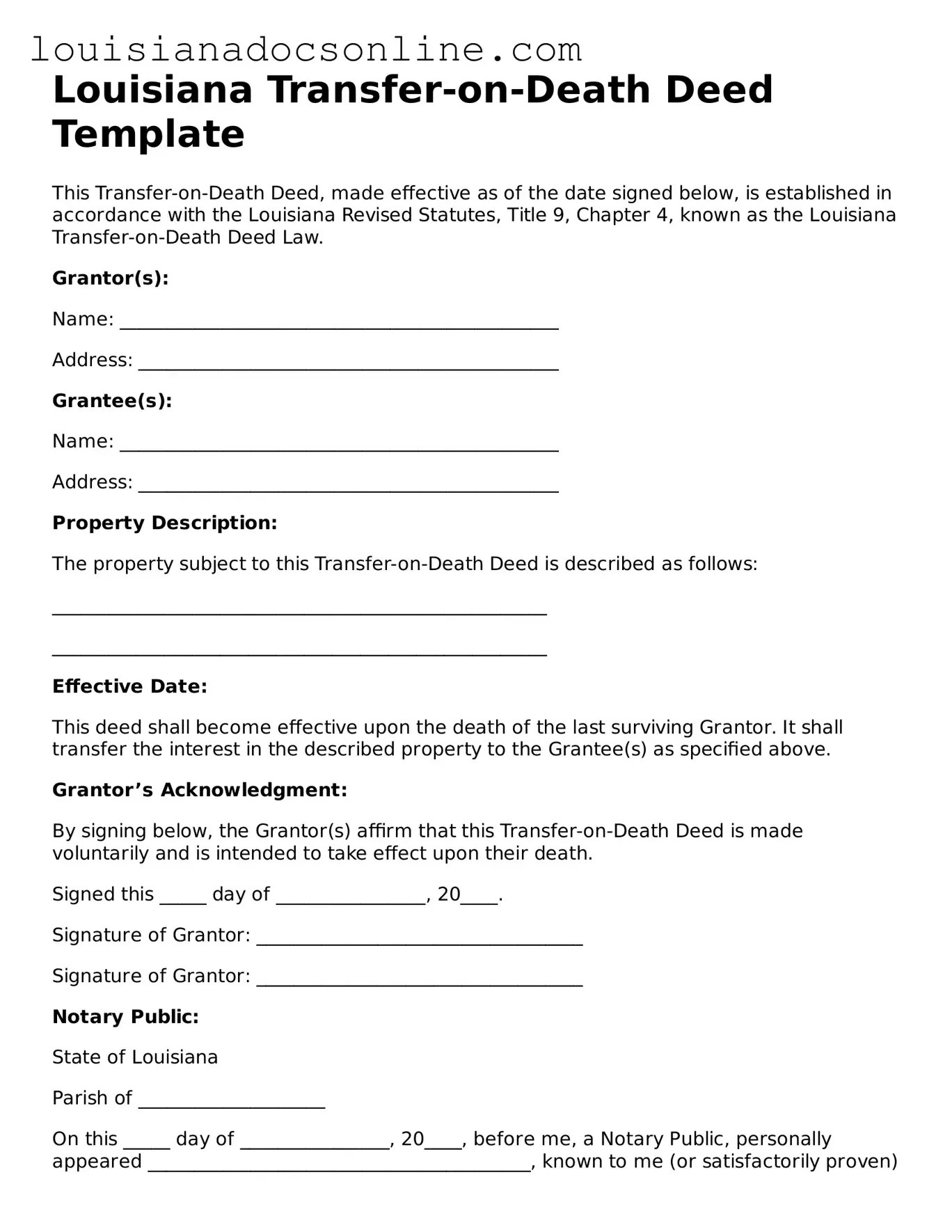Printable Transfer-on-Death Deed Form for Louisiana
The Louisiana Transfer-on-Death Deed form allows property owners to transfer their real estate to designated beneficiaries upon their death, bypassing the probate process. This legal tool provides a straightforward way for individuals to ensure their property is passed on according to their wishes. Understanding how to properly utilize this form can help streamline the transfer of assets and reduce potential complications for loved ones.
Get This Form Now

Printable Transfer-on-Death Deed Form for Louisiana
Get This Form Now
Don’t forget to finish your form
Finish Transfer-on-Death Deed online — fast edits, instant download.
Get This Form Now
or
↓ Transfer-on-Death Deed PDF
